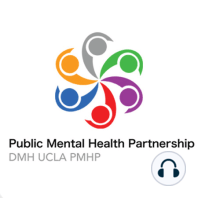43 min listen

Trauma-Informed Care (FSP Training Collaboratives) Part 1
Trauma-Informed Care (FSP Training Collaboratives) Part 1
ratings:
Length:
155 minutes
Released:
Jun 8, 2020
Format:
Podcast episode
Description
FSP Training Collaboratives: Trauma-Informed Care (TIC) is a full day training focused on expanding the practice, knowledge, and skill of social workers, case managers, peer specialists, psychologists, and psychiatrists who work in Full Service Partnership (FSP) programs in Los Angeles County. The course introduces the neurochemical stress response system (NSRS) to participants in a manner that is easy to understand and relate to. This system is then expanded to demonstrate how human responses to stress, fear, and trauma can be life-saving as well as problematic. The course looks at a continuum of responses from motivating to debilitating. To counter the negative impact of stress, trauma, and fear, the course reviews resiliency factors and how these factors can vary from person to person. Each participant is given an opportunity to identify their own resiliency factors and discuss how to further strengthen their resilience. In working with people facing serious struggles with mental illness, the course demonstrates how a relationship, safety, trust, and control facilitate a path to recovery. Finally, a brief overview is provided of specific treatment options and diagnoses related to stress, fear, and trauma.
Released:
Jun 8, 2020
Format:
Podcast episode
Titles in the series (100)
Transcending Principles of Street Medicine and Its Role in Healing by Brett Feldman, MSPAS, PA-C by DMH UCLA Public Mental Health Partnership